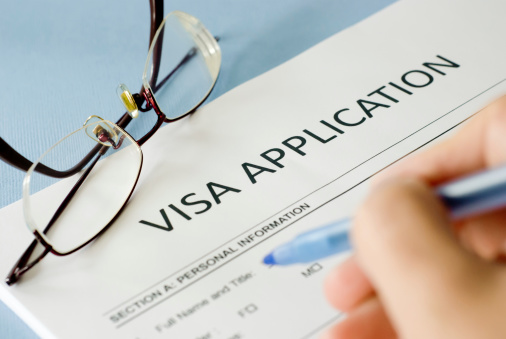

The Innovator Visa and the Start Up Visa pertain to business owners who want to come to the UK and bring a business idea with them. However, the two visa categories do have some differences. If you’re hoping to come to the UK, it’s important to pick the correct category for you. Rather than seeing it as an Innovator Visa vs. Start up Visa, it’s more about which route best fits your experience level and what helps with business plans in the UK.
Table Of Content
- Innovator Visa
- Eligibility
- How Is A Start Up Visa Different?
- Differences in Length Of Stay
- Financial Requirements – Are They The Same?
- The Expenses to Apply
- Is There An Extension With Either The Innovator Visa and Start Up Visa?
- Can I Take On Other Work With The Visas?
- Documents Required
- Conclusion
Innovator Visa
The Innovator Visa, that replaced the Tier 1 Entrepreneur Visa, is aimed at people with considerable business experience that want to start a business venture to prepare a business plan and help with business plans in the UK. Business plans are very similar to SEIS business plan. Applicants for this visa will also need more capital available.
Eligibility
Firstly of course, you’ll need that all-important business idea. It must bring something completely new to the UK market and benefit the British workforce. Easy! This fulfills the ‘innovation’ part of the three key criteria for your idea.
The Home Office will be looking for your idea to fit two other key elements:
- Scalability – does it have potential to grow and create jobs
- Viability – do you as the applicant have all the relevant skills to make your business idea a success
Before you make a visa application you must have your idea endorsed by an endorsing body. The body must write a detailed letter on your business proposal to the Home Office. This will then be used in your application.There are many different bodies that could endorse your proposal. Some work across all sectors or may be restricted to just one. The Home Office has collated a list you can access of bodies you could contact here. You’ll also need £50,000 of investment funds available.
How Is A Start Up Visa Different?
Essentially the main differences are levels of experience and investment funds available. Successful applications for a Start up Visa are decided on the basis of an entrepreneur having ‘high potential’ rather than experience. For a Start up Visa plan in the UK, you also don’t need investment funds available, just a lot of ambition to prepare a business plan start a business in the UK for the first time.
However you must still present a business idea that fulfills the same above criteria of innovation, scalability and viability. An endorsement from an endorsement body is also vital for success. These are beneficial plans for business growth.
There is also a credibility requirement for the Start Up Visa Plan in the UK. The Home Office will want to ensure you:
- Genuinely intend to undertake your business activity. The Home Office will refer to your work, education and immigration history, and any declaration made on your application.
- Not intend to work in breach of immigration law.
- Have any money claimed in your application available for the purposes described in your application
Differences in Length Of Stay
The difference between the two visas is that under the Innovator Visa, you have three years leave in the UK however on the Start up visa, you only have two years.
Financial Requirements – Are They The Same?
The £50,000 worth of investment funds is only necessary for the Innovator visa, and must be able to be evidenced. The personal financial requirements are very similar.
For both the Innovator Visa plan and the Start Up Visa plan in the UK, you must be able to show you have at least £945 in your bank account for 90 consecutive days. Under both visa categories, applicants won’t have access to state support, or public funds, so you must be able to show you have funds to support yourself once in the UK.
The Expenses to Apply
Fees for both visas depend on where you’re applying from and your personal situation. The Innovator Visa is more expensive, costing £1021 for the applicant and per dependent if you are bringing family members with you. To extend or switch the visa, and therefore to apply from inside the UK costs £1277.
For the Start Up Visa, costs are slightly lower. For the applicant, £363 and the same for your partner and children. Once again, you can bring family members with you to the UK with this visa route.
Is There An Extension With Either The Innovator Visa and Start Up Visa?
A very important difference between these two routes comes with your options once your initial grant of leave comes to an end. On the Innovator Visa route, your visa can be extended for another three years and there is no cap on extensions. However, on the Start Up Visa plan, it cannot be extended in the UK. After two years, you must either switch to the Innovator Visa instead or leave the UK. This means you would need to then meet the requirements under the Innovator visa.
If you wish to settle in the UK long term, switching onto the Innovator Visa is your only pathway to do so. After five years in the UK, with an additional three years under the Innovator Visa, you can then apply for Indefinite Leave to Remain.
Can I Take On Other Work With The Visas?
Under the Start Up Visa, you are able to take on other work while in the UK, while also working on your business. However, on an Innovator Visa you can only undertake work and receive help with business plans in the UK.
Documents Required
For both visa categories you will require a set of documents to be sent as evidence along with your application to the Home Office. The requirements are as follows:
- Current passport or other valid travel identification
- B2 English language test pass certificate/evidence (if applicable)
- Evidence of investment funds
- Bank statements showing at least £945 in savings in your bank account for 90 consecutive days before you apply
For the Innovator Visa, you will also need documentation to evidence the £50,000 worth of investment for your business proposal.
The very important differences between the Innovator Visa and Start Up Visa revolve around the applicant: your level of experience, your long-term plans and whether you have investment funding or not. Either way, as a more experienced entrepreneur or someone just starting out, if you have an ambitious idea you want to bring to the UK one of these two visa routes could work for you.
Conclusion
The Start-up Visa category is effectively a re-branding of the previous Tier 1 (Graduate Entrepreneur) category. The UK government decided not to make significant changes to this route as it was felt that this category was working well.
The Innovator route is a significant departure from the previous Tier 1 (Entrepreneur) category. On the positive side, the investment threshold for the visa application is considerably lower (£50,000 as compared to £200,000). However, the requirements for settlement are more challenging to satisfy. In addition, the requirement to obtain an endorsement from an endorsing body is significantly more onerous as many of the endorsing bodies have strict requirements in order to be accepted onto their scheme. Furthermore, many of the endorsing bodies require the individual to allow them to invest in their business, which is not always attractive to entrepreneurs, especially those who are very experienced.
The initial take up for the Innovator category has been low. However, it is expected that the number of applications will increase now that there are significantly more endorsing bodies compared to when the scheme was launched in March 2019. In addition, these endorsing bodies now cover a wider variety of sectors when initially they were mainly tech focused.
To note, B&F Services has delivered a variety of entrepreneurial services to corporate customers, business owners with small and big companies since 2005. For the past decade, the firm supported over 3000 companies launch, through equity based funding and have helped numerous entrepreneurs to establish and develop businesses’ plans for business growth across Europe and in particular the UK.








